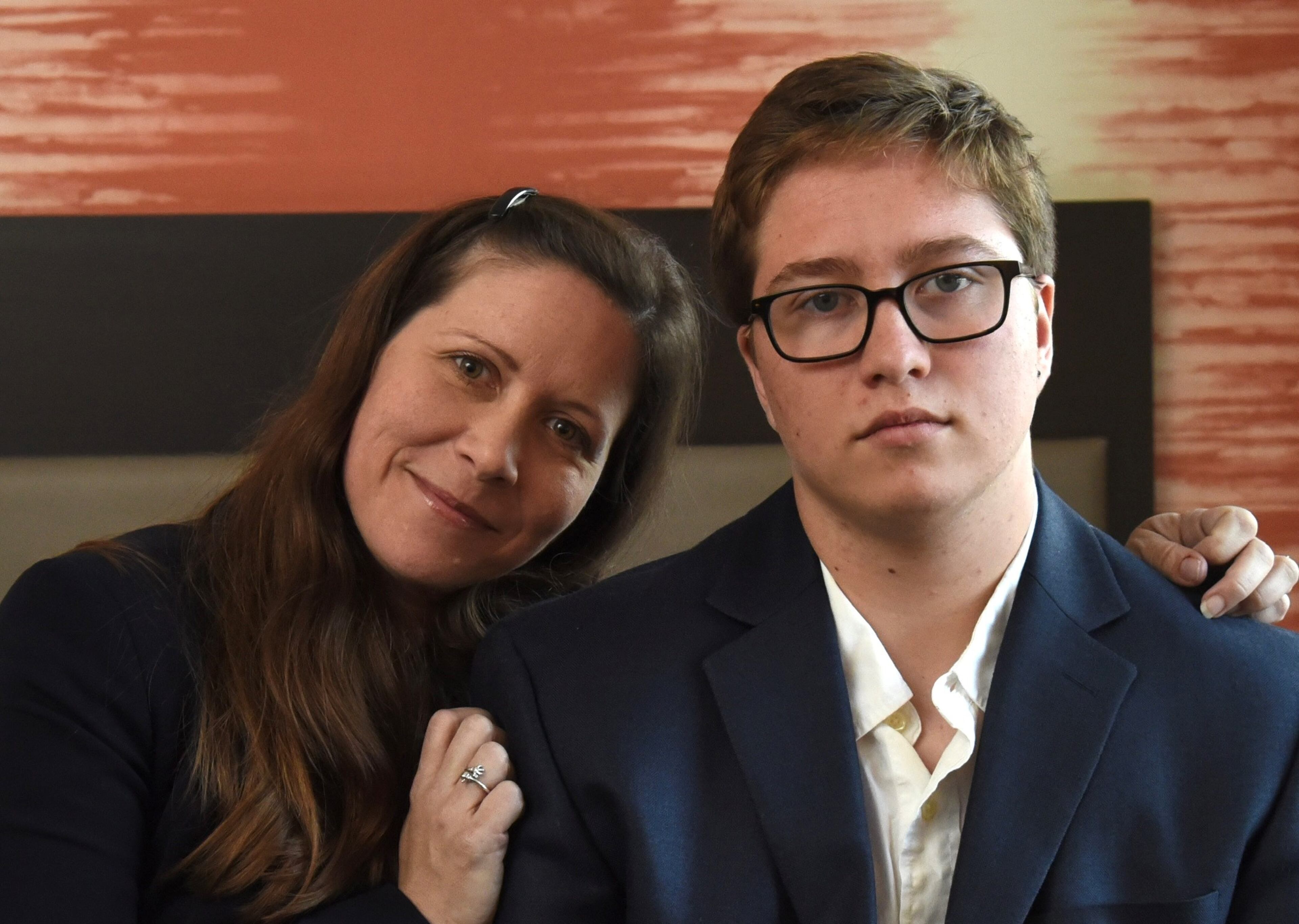Court rules for transgender student in bathroom access case

Transgender high school students must be granted access to bathrooms that correspond with their gender identity, the federal appeals court in Atlanta ruled.
The closely watched case granted a legal victory to Drew Adams, a transgender student who sought access to the boys’ bathroom at Nease High School in Ponte Vedra, Florida. The opinion, issued Friday, said the school board’s policy barring Adams from the boys’ bathroom violated his civil rights by discriminating against him because of his sex.
Local school systems, some of which have been embroiled in controversy because of their transgender bathroom access policies, eagerly awaited the decision. The 2-1 ruling by a three-judge panel for the 11th U.S. Circuit Court of Appeals sets an important precedent for the three states under its jurisdiction: Georgia, Alabama and Florida.
“I am very happy to see justice prevail,” Adams, 19, said in a statement. “High school is hard enough without having your school separate you from your peers and mark you as inferior. I hope this decision helps save other transgender students from having to go through that painful and humiliating experience.”
Adams’ lawyer, Tara Borelli from Lambda Legal, said the court “sent a clear message that schools must treat transgender students with the same dignity and respect as any other student.”
The St. Johns (Florida) school district declined to comment on the court’s decision because the case is still pending, said Christina Langston, chief of community relations. The school board will decide on further appeals, but those decisions have not yet been made, she said.
Adams, an honor student who came out as transgender when he was 14, now attends the University of Central Florida. In 2017, joined by his mom, he sued his county school board after being told he could no longer use the boys’ restroom at Nease High.

The decision, written by Judge Beverly Martin, relied on the U.S. Supreme Court’s landmark ruling last month that held federal law prohibits discrimination against gay and transgender employees in the workplace.

The high court’s decision “confirmed that workplace discrimination against transgender people is contrary to law,” Martin wrote. “Neither should this discrimination be tolerated in schools. The school board’s bathroom policy, as applied to Mr. Adams, singled him out for different treatment because of his transgender status.”
Martin added, “A public school may not punish its students for gender nonconformity. Neither may a public school harm transgender students by establishing arbitrary, separate rules for their restroom use.”
Martin was joined by Judge Jill Pryor. Both were appointees of President Barack Obama.
Chief Judge Bill Pryor, appointed by President George W. Bush, issued a stinging dissent, predicting the decision will have “radical consequences for sex-separated bathrooms.”
When the Supreme Court ruled last month in favor of LGBTQ rights in the workplace, it pointedly declined to consider the issue of transgender bathroom access, Judge Bill Pryor said.

In its Adams’ decision, the 11th Circuit’s majority “reaches the remarkable conclusion that schoolchildren have no sex-specific privacy interests when using the bathroom,” he said. " ... The logic of its opinion would invalidate all government policies that separate bathrooms — or locker rooms and showers, for that matter — by sex.”
Pryor’s dissent could mean the case is far from over. The decidedly conservative 12-member 11th Circuit could decide as a whole to reconsider Friday’s decision. If that happens, Martin’s majority opinion would be vacated until a new one is issued.



